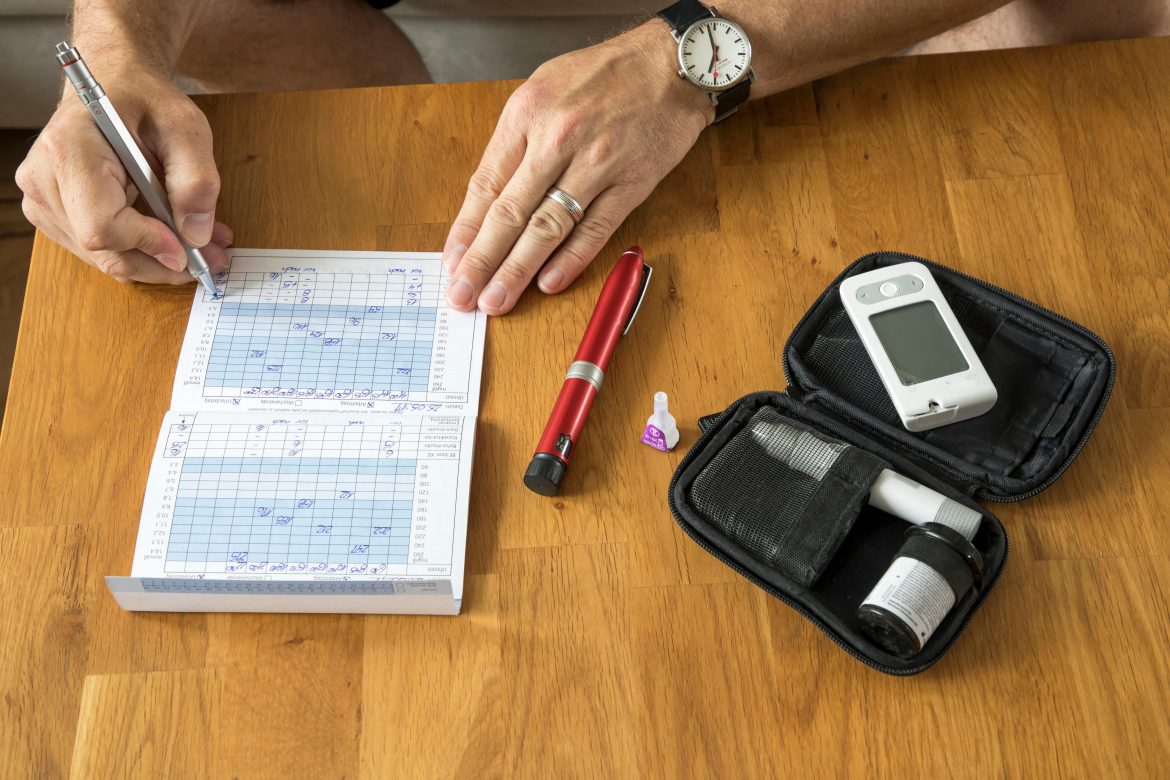“I was constantly thirsty… up four or five times a night to go to the toilet… so I knew something was wrong. Diabetes runs in my family so I just had to bite the bullet and contact the doctor.”
Martin is a type 2 diabetic who got his initial diagnosis in April 2022, but he has also faced a number of illnesses over the last decade that have required significant hospital care and outpatient treatment.
When he went to seek help they took his blood sugar levels. Diabetes UK puts the healthy concentration of glucose in the blood at 4-7mmol/l. Martin’s levels were reading 80mmol/l, so he was almost immediately diagnosed with type 2 diabetes.
Martin knew his diagnosis would require a change in lifestyle, but the initial guidance he received from the doctor was not very helpful.
“My doctor gave me some documentation in terms of diet; what I should be eating, what I shouldn’t be eating.” said Martin, who said that he was replacing sugary drinks with the “healthier” diet options as well as fruit juice.
“Then three or four weeks later we got to see a diabetes dietitian who literally tore up the list of recommended food and drinks, and he said that was all wrong.”
Martin went on to clarify that he did not believe this was a general issue plaguing the NHS, but rather that our knowledge of diabetes is evolving year after year, and that the first doctor he saw was potentially using outdated sources.
After the initial complications, Martin has now adjusted his diet and exercise to help combat his diabetes. He is also takes medication and measues his blood sugar levels at least once a day.
Martin has used his diagnosis to help other men in a similar situation to him.
“So, I have a close friend of mine who’s currently experiencing symptoms that are similar to mine and he says ‘I’m afraid [I might have] diabetes’. And I can tell him ‘well if you’ve got these symptoms, and you feel this way, and you feel sick or tired or fatigued after having sugar or full meals… chances are you might have diabetes.'”
Martin advised: “Don’t delay, go and get it checked out, because you can have a urine test and a blood test that will absolutely clarify… yes or no, it’s a fairly basic test.
“And if you do have diabetes, the sooner you start medication or changing your diet or following the doctor’s recommendation, the better.”
On men’s attitudes to health more generally, Martin observed: “[Some men] will try and just muscle on… and just take note of any issues. And you look at rugby players who will play 40 minutes with a broken arm because they don’t want to be seen as incapable.”
Martin also reflected how the upbringing of men from his generation may have an impact on our contemporary attitudes.
“I’m 60 now, but I’m from a generation that grew up in a situation where you just had to grin and bear it… there was no kind of mollycoddling.
“Even more so in my dad’s generation, [as] they just came through the war and they just got on with things and didn’t want to admit any kind of weakness or failings.”
Despite these ideas toward health still being present in modern men, Martin ends on an optimistic note.
“I think we’re in a generation now where there are more resources available [and] there are more support specialists available for whatever ailment or situation it might be. So I think it’s become more and more open to discuss, you know, frailties and concerns and worries, whether it’s physical or mental. It’s less of a taboo.”
For more information on diabetes visit the diabetes page on the NHS website.
Likes his football





